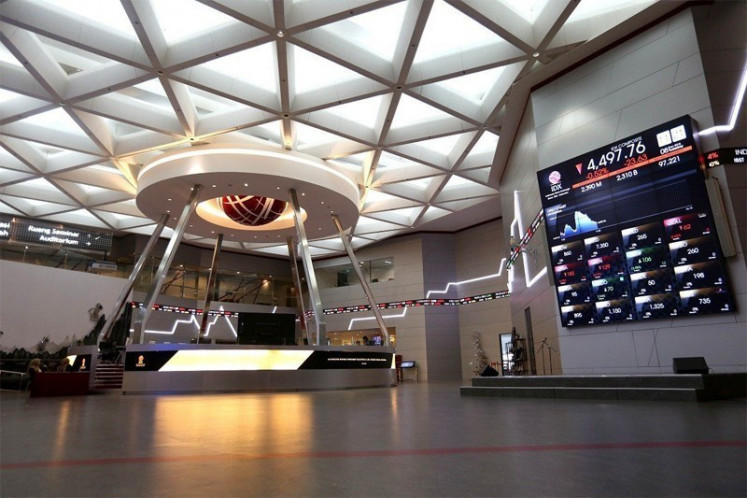Popular Reads
Top Results
Can't find what you're looking for?
View all search resultsPopular Reads
Top Results
Can't find what you're looking for?
View all search resultsThe regional tax bill means higher taxes on cigarettes
Despite their objections, cigarette makers are almost certain to be subject to an additional tax charged under a provision of the bill on regional tax and tax refunds, whose deliberation is now nearing completion in the House of Representatives
Change text size
Gift Premium Articles
to Anyone
Despite their objections, cigarette makers are almost certain to be subject to an additional tax charged under a provision of the bill on regional tax and tax refunds, whose deliberation is now nearing completion in the House of Representatives.
Lawmaker Harry Azhar, who heads the House of Representatives’ special committee overseeing the bill, said the bill would allow regional governments where the cigarette producers are located to charge an extra tax, in addition to regular and excise taxes imposed by the central government.
While the additional tax — one of the most contentious issues during the bill’s deliberation — has been agreed in principle, the rate to be charged has not yet been agreed among legislators and government representatives on the committee, Harry said on Saturday.
“Basically we have finalized most issues in the bill, but that does not include the tax rate on cigarettes [for regional governments].”
“The government is still of the opinion the rate should be 10 percent, while we insist on 25 percent of the product’s selling price,” he said, adding that deliberations would continue later this week.
All sides, according to Harry, have agreed that 50 percent of the tax levied would be for the province and the remaining 50 percent for regencies and municipalities.
A 10 percent regional tax, would generate proceeds up to Rp 5 trillion [about US$480 million per year] levied to boost regional budgets for healthcare and for infrastructure development.
The bill is designed not only to bolster regional government coffers, but aims also to strike a balance between the growth of the industry and the health concerns arising from cigarettes.
One of the main reasons for Indonesia’s high number of smokers and the amount of cigarettes purchased is their low prices relative to other countries which impose high taxes. The bill seeks to bring Indonesia into line, Harry claimed.
“All these taxes could eventually [help] minimize the number of people addicted to cigarettes. High taxes mean high selling prices for cigarette, so customers will think twice,” Harry said.
He pointed to the example of much stricter regulations in Thailand where the cumulative taxes on cigarettes have reached about 80 percent of the selling prices.
The cigarette makers however see it differently, claiming that a new tax will only add a burden to the companies despite them already being subject to regular excise taxes by the central government, while at the same time they could not increase their product’s selling prices pro rata to new taxes given the tough present economic conditions.
“This will double taxes and will burden us even more because we have already paid tax,” Niken Rachmad, communications director at PT HM Sampoerna, the country’s largest cigarette maker by volume, said last week.
Niken said Sampoerna is yet to decide whether to increase cigarette prices accordingly if and when the proposed new taxes takes effect.
Aside from Sampoerna, the country also houses other renowned giant tobacco companies; PT Gudang Garam, PT Djarum, PT Nojorono, PT Bentoel, and PT British American Tobacco (BAT) Indonesia.
Harry stressed it was never the intention of the country to kill off the cigarette industry, which contributes significant tax revenue to state coffers in addition to employing tens of thousands of workers.
“That’s why while the deliberation of the bill will soon be completed and endorsed, the regional tax will only be applicable [starting in] in December 2013 to provide the industry with a transition [period] to make necessary adjustments.” (naf)










